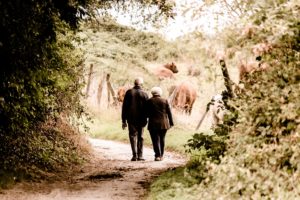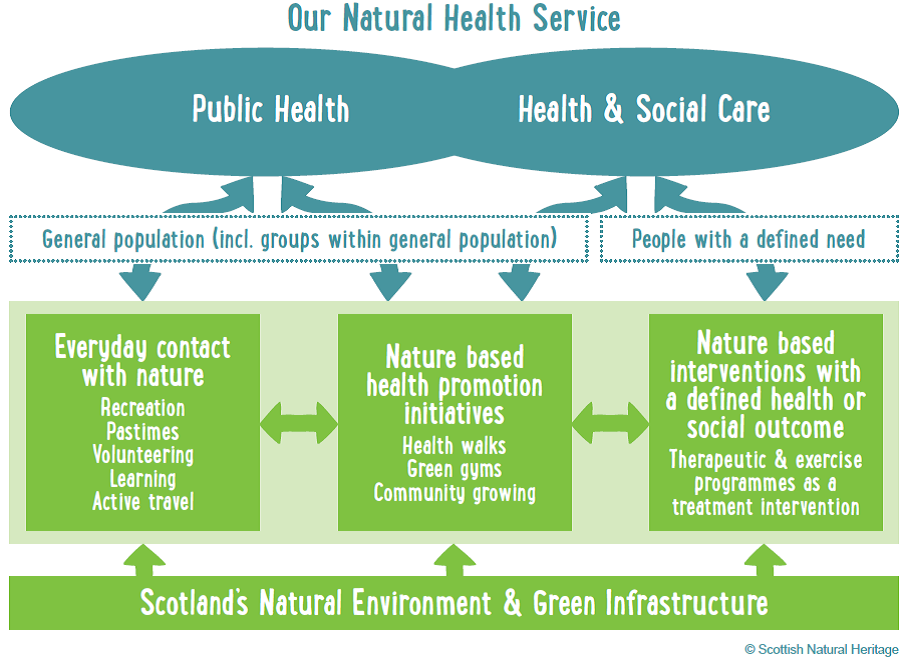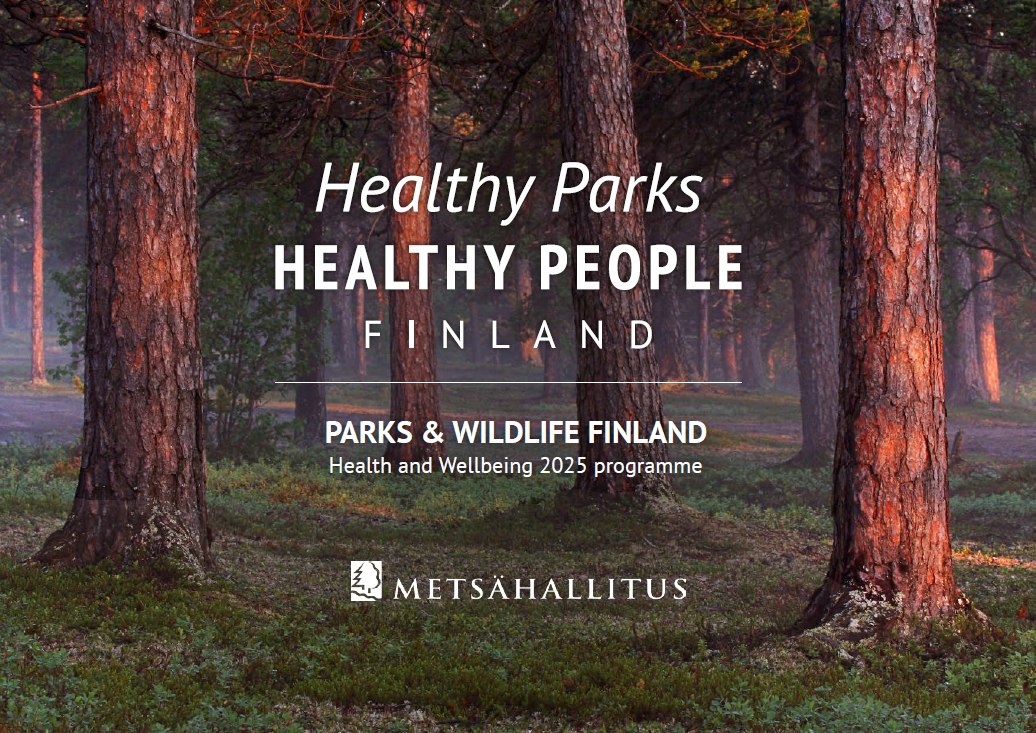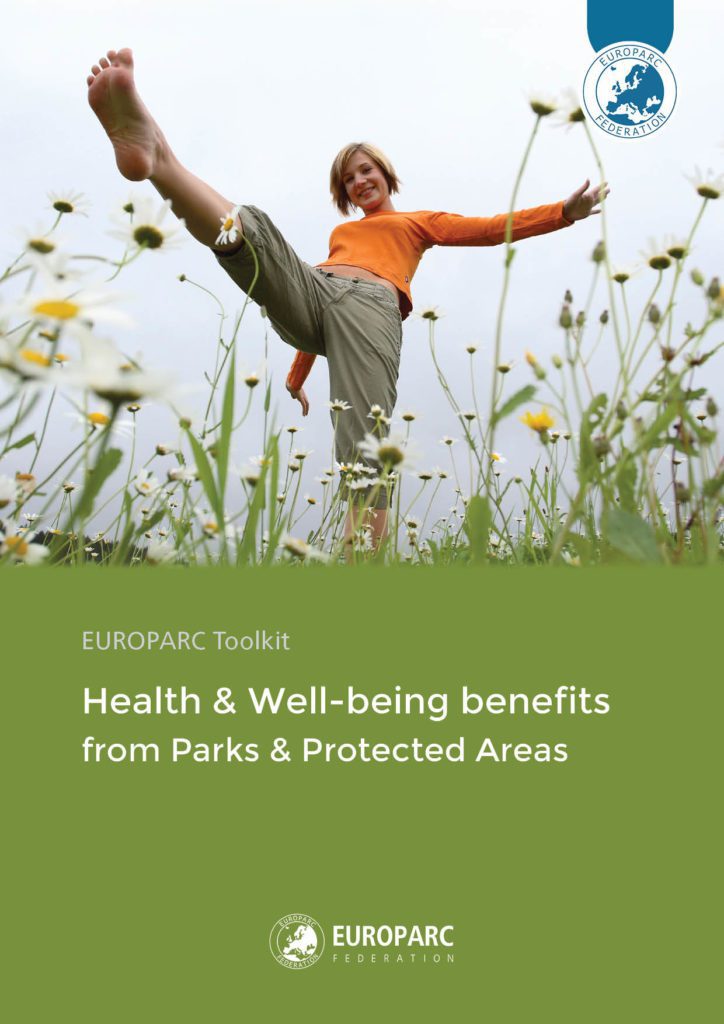EUROPARC Toolkit: Health and Well-being benefits from Protected Areas
On the occasion of the World Health Day 2018, EUROPARC launched a toolkit addressing the health outcomes that Protected Areas can bring to their local communities.
The toolkit “Health and Well-Being Benefits from Parks and Protected Areas” provides practical advice to set up policy and activities in your Park; brings you the latest evidence, reports and other useful resources; and shares inspiring examples from across the EUROPARC network.
A must-read for all Protected area staff (including planners, site managers, rangers, and wardens) but also to governmental bodies aiming to develop national and regional policy to leverage health benefits from natural areas.
Toolkit: Health and Well-being benefits
Why should Parks be involved in supporting health outcomes? The delivery of health objectives by parks and protected areas is a natural extension of their traditional role in providing for access and recreation – it illustrates the environment sector responding to social needs and should be embedded as part of park management bodies’ core business.
According to the Annual Report of the Chief Medical Officer ‘transforming Scotland’s Health, NHS Scotland in 2011, a brisk 30-minute walk on five days of the week can reduce the risk of:
- Heart attack and stroke by 20-30%;
- Diabetes by 30-40%;
- Hip fractures by 36-68%;
- Bowel cancer by 30%;
- Breast cancer by 20% and
- Depression/dementia by 30%
Visiting the outdoors can help address issues of poor health and health inequalities
There is a range of good practice in Europe’s national parks and other protected areas in increasing physical activity, improving mental health and addressing health inequalities using green exercise and contact with nature through outdoor recreation, volunteering, learning, gardening and active travel. In the toolkit, you will find the latest studies that showcase a positive correlation between outdoor activities and health improvements, and access some interesting projects that have been implemented throughout Europe.

National Perspectives: linking Health & Nature
Parks & protected areas contribute to individual and community health and well-being, and to wider aspects of economic health and growth. We share 2 examples of how national health policy and practice based on nature-based solutions can contribute to disease prevention, treatment and care.
Scotlands’ “Natural Health Service”
Scotland is making significant progress in the green health agenda and is seen as a front-runner within the UK and Europe in this topic. We bring you specifically the initiative “Our Natural Health Service”, a cross-sector partnership involving planning, transport, education, sport, health and environment.
Landscape and access improvements have brought a range of health benefits, as well as enhancing biodiversity and delivering more cost-effective estate management systems. Scotland is making the case for nature & health: showing how green exercise contribute to key health challenges, improve quality of life and tackles physical inactivity, mental ill-health and health inequalities

“Healthy Parks, Healthy People Finland”
Benefits of nature for human health and wellbeing are seen as an increasingly important topic in Finnish society. The national agency Metsähallitus – Parks and Wildlife Finland, working in cooperation with its partners, is responding to future challenges through the Healthy Parks, Healthy People Finland 2025 programme. The goal of the programme is to improve social, physical and mental well-being of the Finnish population through green space and contact with nature.
The aim is to inspire people to become physically active and to spend time in the natural environment more often and for longer periods in their everyday life as well as their leisure time.

The Toolkit was developed by the members of EUROPARC Commission on Health and Protected Areas, who are very keen to receive your feedback.
The principles expressed in the toolkit have been developed from the Healthy Parks Healthy People philosophy as set out in the Melbourne Communiqué of 2010 which has been endorsed by the EUROPARC Federation.
